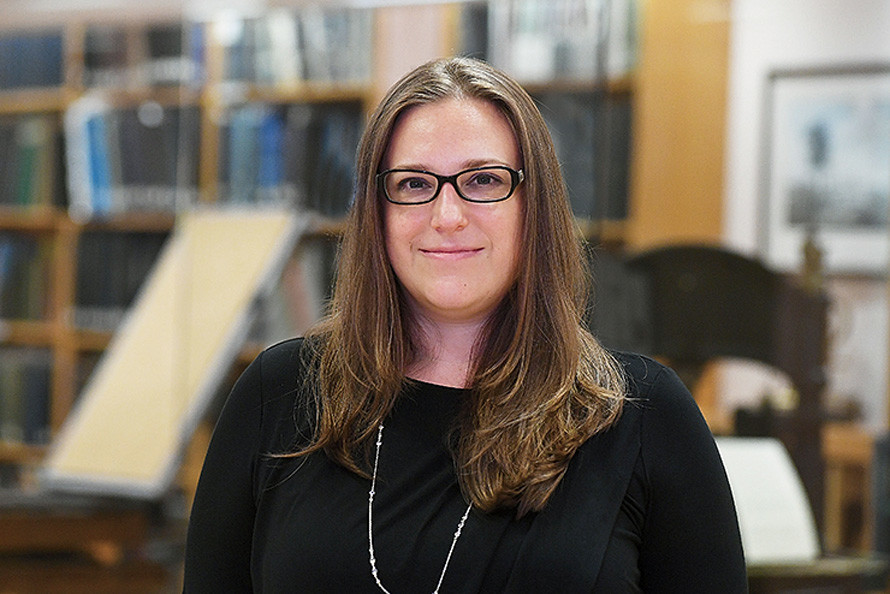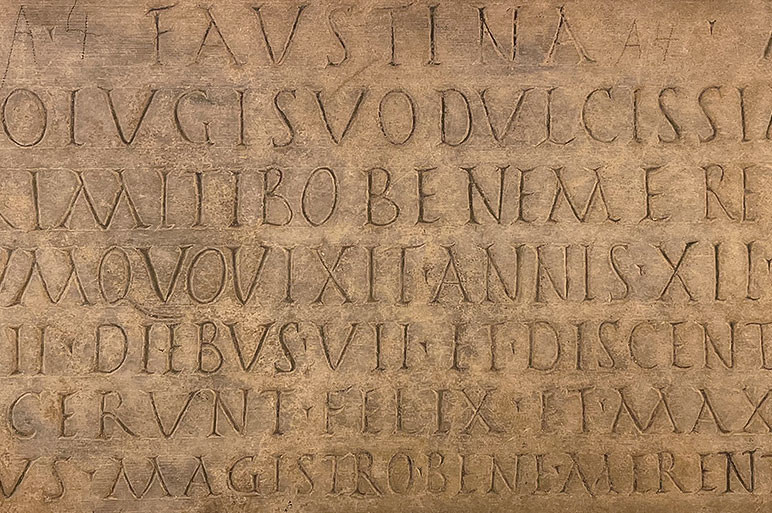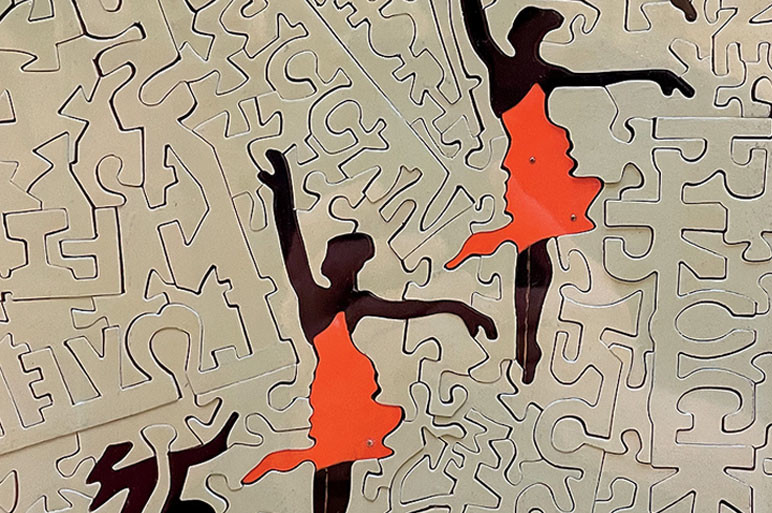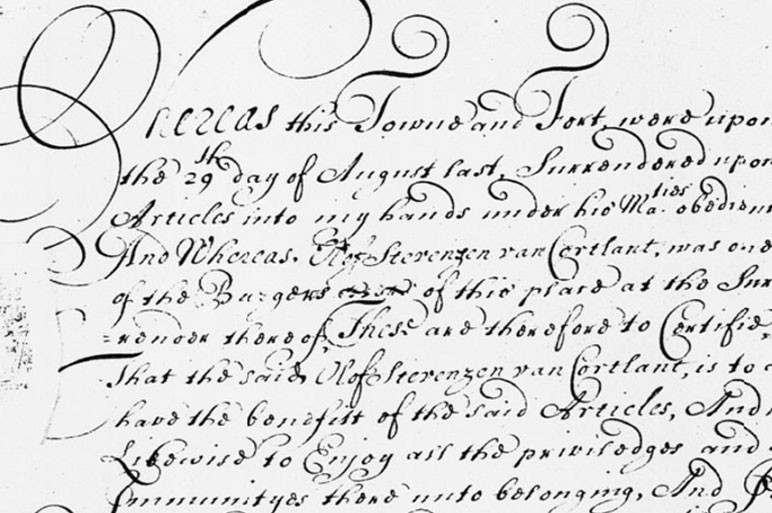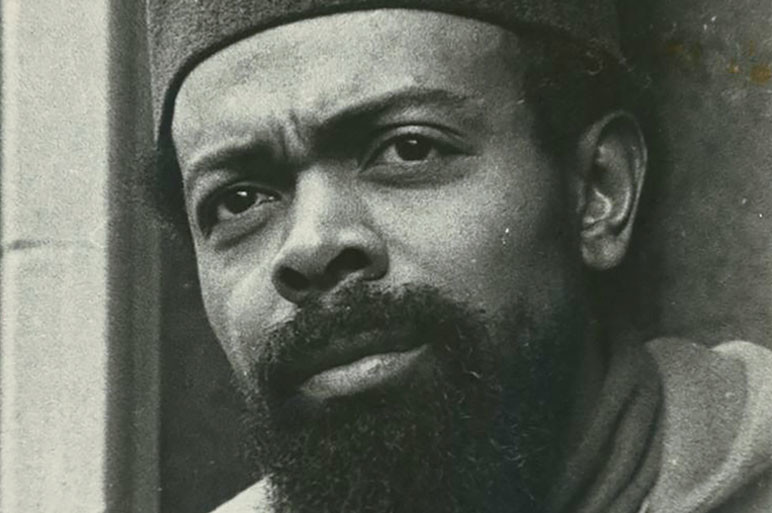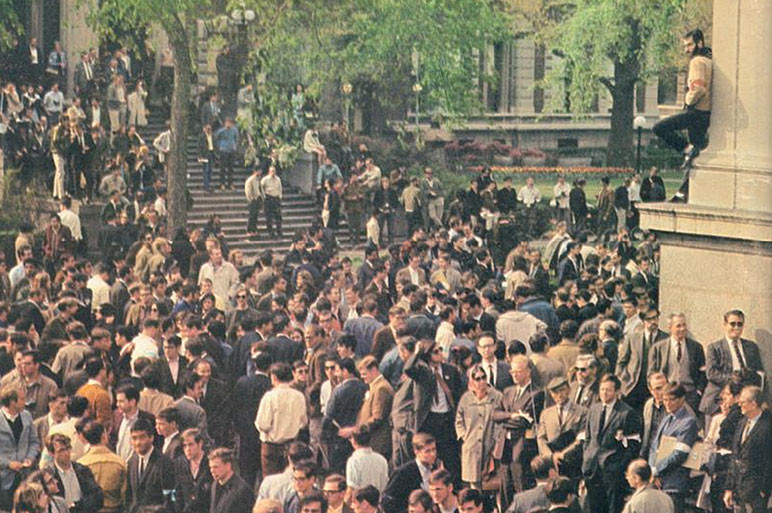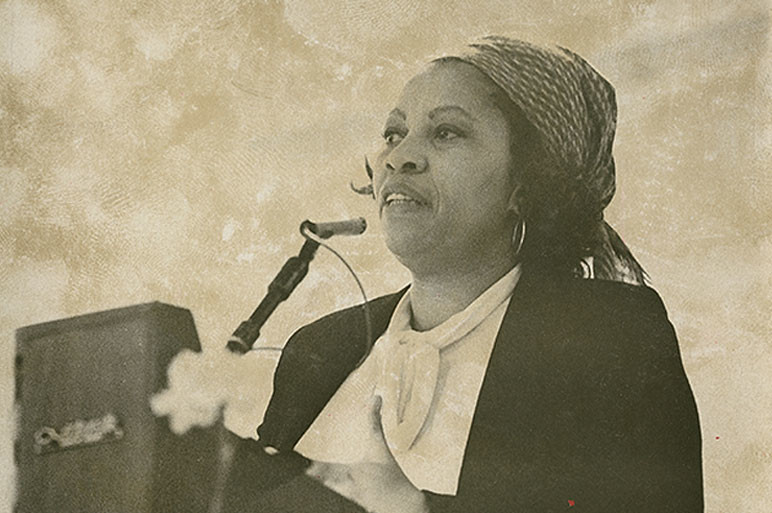When Courtney Chartier became the director of Columbia’s Rare Book and Manuscript Library (RBML) last fall, she was astonished by the scope of the collection. The RBML, on the sixth floor of Butler Library, boasts everything from medieval Arabic math texts to Renaissance manuscripts to quill-pen epistles of the Founding Fathers to the typed memos of the shapers of the modern world. Where else can you find letters of Aaron Burr and Aaron Copland ’71HON, Ralph Waldo Emerson and Ralph Bunche ’50HON, or the papers of Thomas Edison and Thomas Merton ’38CC, ’39GSAS?
We asked Chartier, who was previously head of research services for the archives of Emory University, to share some of her favorite discoveries.
Epigraphy stones
“RBML has about 130 samples of Latin inscriptions incised in marble and lead. These date largely from the first two centuries CE and come mostly from Rome. Some weigh over a hundred pounds. The epigraphs tell you about the lives of the deceased. This one is from a woman to her husband, ‘a well-deserving teacher.’”
Arthur Mitchell papers
“Choreographer and dancer Arthur Mitchell ’16HON founded the Dance Theatre of Harlem (DTH), a direct result of the civil-rights and Black Arts movements. On display in Butler is a four-thousand-piece puzzle honoring DTH on its twentieth anniversary in 1989. It’s an incredible artifact and an exciting visual celebration.”
John Jay papers
“John Jay 1764KC was one of the authors of the Federalist Papers and later the first chief justice of the United States. The collection includes correspondence with John Adams and Thomas Jefferson. If you like US history, you can read a biography of Jay or you can come in and read his letters to George Washington.”
Amiri Baraka recordings
“We have the papers of poet and activist Amiri Baraka, and the collection also contains recordings of his performances, interviews, and experimental films. It’s fascinating to be able to see an artist turn from one medium to another.”
1968
“We are also the home of Columbia’s institutional archives, and the ’68 collection is really astonishing. It has all kinds of interesting documentation of the campus protests from the point of view of the administration and faculty as well as the students, so that you get the whole picture of what was happening.”
Toni Morrison’s files
“In the records of Random House are many treasures, but none are more significant to twentieth-century literature than the files of Toni Morrison ’84HON, an editor at Random House from 1967 to 1983. One highlight is Morrison’s scorching response to a critique of Angela Davis’s autobiography.”
